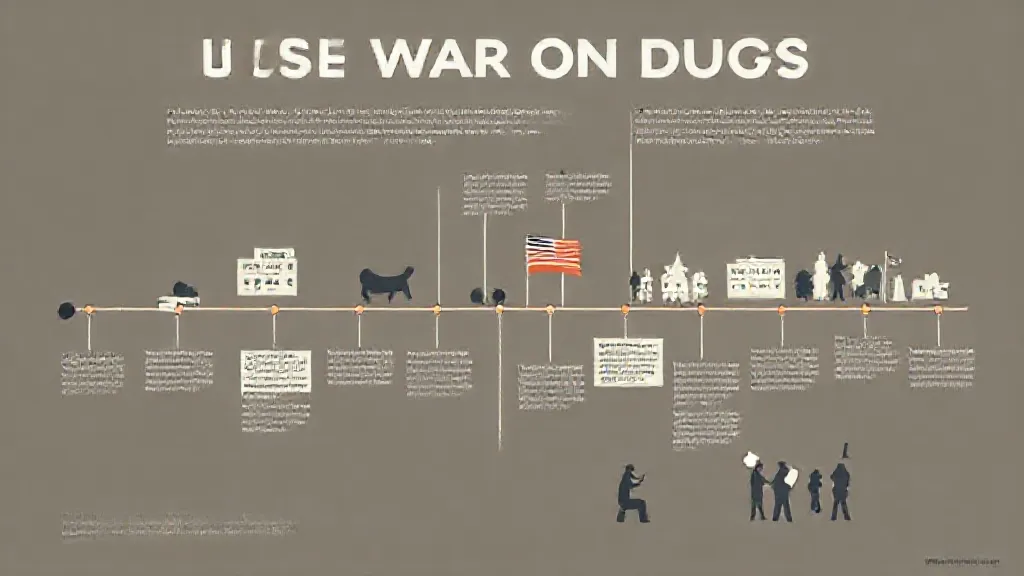The War on Drugs, a term that encapsulates the United States government's campaign to reduce illegal drug trade and use, officially began in the early 1980s. However, its roots can be traced back to earlier decades characterized by increasing drug use and associated social issues. This article aims to unpack the multifaceted reasons behind the launch of this controversial initiative, examining historical, political, and social dimensions.
Historical Context of Drug Use in America
The roots of drug use in America can be traced back to the 19th century, with substances like opium and cocaine being widely used for medicinal purposes. By the early 20th century, concerns over addiction and social decay prompted the government to regulate these substances. The Harrison Narcotics Tax Act of 1914 marked a pivotal moment, beginning a shift towards stricter drug laws.
However, it was not until the 1960s and 1970s, with the rise of counterculture movements and the proliferation of drugs like marijuana and LSD, that drug use became a significant societal concern.
Political Motivations Behind the War on Drugs
The War on Drugs was significantly influenced by political dynamics, particularly during the Nixon administration. In 1971, President Richard Nixon declared drug abuse as "public enemy number one," framing the issue as a threat to national security and social order.
This declaration was not merely a response to rising drug use; it also served to galvanize political support and distract from other pressing issues, such as civil rights and the Vietnam War. Nixon's approach laid the groundwork for future policies that prioritized punitive measures over public health solutions.
The Role of Media in Shaping Public Perception
Media played a crucial role in shaping public perception of drug use and the subsequent War on Drugs.
Sensationalized reporting on drug-related crimes and overdoses contributed to a climate of fear, which in turn fueled public support for aggressive anti-drug policies. The portrayal of drug users as dangerous criminals rather than individuals in need of help further entrenched punitive measures, leading to the criminalization of addiction rather than treating it as a public health issue.
Legislative Developments and Escalation of the War
The 1980s saw a significant escalation in the War on Drugs, marked by the introduction of the Anti-Drug Abuse Act of 1986.
This legislation established mandatory minimum sentences for drug offenses, disproportionately impacting marginalized communities. The act was a response to the crack cocaine epidemic, which was perceived as a national crisis. The harsh penalties and aggressive policing strategies that followed led to an exponential increase in incarceration rates, particularly among African American and Latino populations.
Impact on Communities and Social Justice
The War on Drugs has had profound implications for communities across the United States. The focus on punitive measures resulted in widespread incarceration, disrupting families and communities. Critics argue that these policies have perpetuated cycles of poverty and disenfranchisement, particularly in communities of color.
The social justice implications of the War on Drugs have sparked movements advocating for reform, emphasizing the need for a shift from punitive approaches to treatment and rehabilitation.
International Dimensions of the War on Drugs
The War on Drugs is not confined to the U.S.
; it has global ramifications. U.S.
drug policy has influenced international drug control efforts, particularly in Latin America. Countries like Colombia and Mexico have faced significant violence and instability as a result of U.S.
anti-drug initiatives. The focus on eradication and interdiction often overlooks the socio-economic factors contributing to drug production and trafficking, leading to criticism of the effectiveness of such strategies.
Recent Developments and the Future of Drug Policy
In recent years, there has been a growing recognition of the failures of the War on Drugs, leading to calls for reform.
Movements advocating for the decriminalization of certain drugs, as well as the legalization of marijuana, have gained traction. Public health approaches, such as harm reduction and treatment programs, are increasingly seen as more effective strategies for addressing substance use disorders. The future of drug policy in the U.
S. may hinge on a fundamental shift away from punitive measures towards a more compassionate and evidence-based approach.
Conclusion: Reevaluating the War on Drugs
The War on Drugs remains a contentious and complex issue in American society.
Understanding its origins and motivations is crucial for grappling with its ongoing impacts. As discussions around drug policy continue to evolve, it is essential to consider the lessons learned from the past and the potential for a more equitable and effective approach to addressing drug-related challenges.
